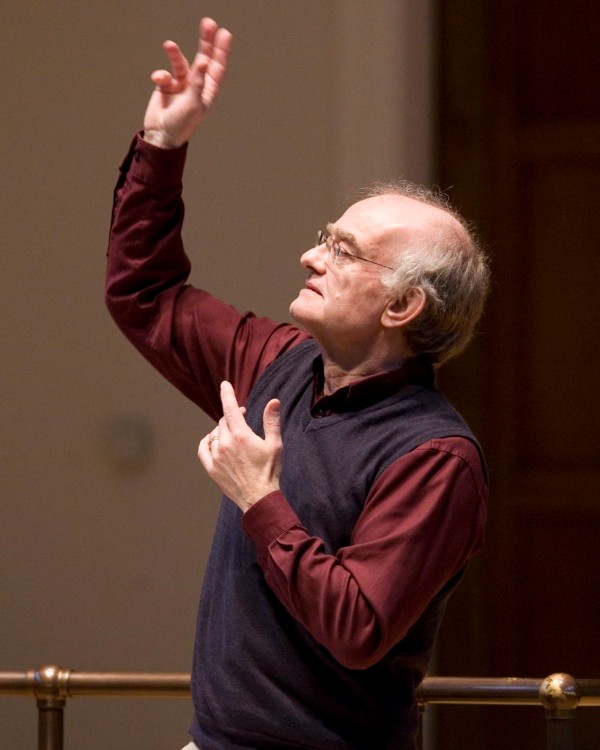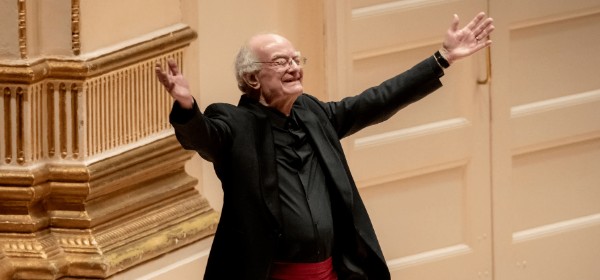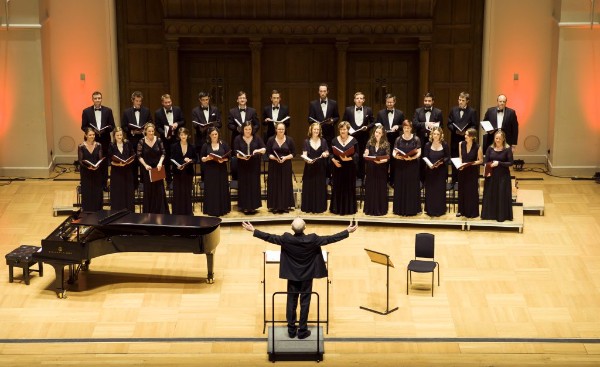On the occasion of John Rutter’s 80th birthday on 24 September 2025, choral communities across the globe join in a formal celebration of his extraordinary contributions to the world of music. His compositions have enriched the repertoire of choirs worldwide, gracing sacred spaces, concert halls, and festivals with their profound beauty and emotional depth.

John Rutter
Rutter’s artistry has inspired generations of singers, conductors, and audiences, fostering a shared sense of unity and reverence through the power of choral music. As we reflect on this milestone, it is fitting to explore Rutter’s life, his artistic contributions, and the enduring impact of his work
Igniting a Lifelong Passion
John Rutter’s early life was steeped in the sounds of London’s vibrant cultural landscape. Growing up above the Globe pub on Marylebone Road, the son of an industrial chemist, he discovered music’s enchanting world through an out-of-tune upright piano.
His formal education at Highgate School, where he sang as a chorister alongside future luminaries like John Tavener, ignited a passion for composition. At just 18, Rutter penned his “Shepherd’s Pipe Carol,” a piece that captured the ethereal innocence of pastoral imagery and foreshadowed his affinity for Christmas carols.
This early work, published during his undergraduate years at Clare College, Cambridge, marked the beginning of a prolific output that blended English choral traditions with innovative textures. At Cambridge, Rutter not only studied music but also served as Director of Music at Clare College Chapel from 1975 to 1979, elevating the choir to an international standing.
Crafting Choral Classics

John Rutter
John Rutter played a pivotal role in the Carols of Choir series, particularly from 1970 onward. As co-editor alongside Sir David Willcocks, Rutter contributed original works and arrangements, which blended traditional folk elements with vibrant rhythms and luminous harmonies.
Earning praise for their “joyful qualities” and “musical polish,” Rutter’s work on subsequent volumes further showcases his versatility. In fact, Willcocks called him “the most gifted composer of his generation.”
Rutter decided to leave Academia in 1979 to focus on composition. This decision was pivotal as it allowed him to establish the Cambridge Singers in 1981. This professional choir became his creative laboratory, recording sacred repertoire on his Collegium Records label and touring globally.
Mourning and Majesty
Yet, Rutter’s path was not without adversity as he battled health problems from 1985 to 1992, a period that curtailed commissions and forced a re-evaluation of his creative process. Emerging from this trial, Rutter’s music gained deeper emotional layers, as evident in works like the Requiem, which balances mourning with consolation.
Rutter’s sacred choral music is rooted in a harmonic language that favours modal shifts and lush tertian sonorities to facilitate emotional accessibility. Demanding vocal precision, these works blend simplicity and sophistication, appealing to both amateur and professional ensembles alike.
John Rutter’s influence extends to secular realms as well. His “This is the Day,” composed for the wedding of Prince William and Catherine Middleton, fuses psalmic joy with contemporary resonance. We also find orchestral works, such as the Suite Antique, stimulated by Bach’s Brandenburg Concertos, and two Beatles-themed piano concertos inspired by the American songbook tradition.
Uniting Voices

John Rutter with the Cambridge Singers
John Rutter’s contributions to choral music have left an enduring mark on the global choral landscape, blending accessibility with harmonic sophistication to create works that resonate across sacred and secular contexts.
Rutter’s ability to infuse traditional texts with modern sensibilities, often through luminous tonal palettes and subtle rhythmic vitality, has been praised as “a gift for melody and an instinctive understanding of the voice.”
As we celebrate his 80th birthday, we honour John Rutter’s enduring legacy as a defining figure in contemporary choral music. His lasting impact stems from his unique ability to craft music that is both emotionally immediate and technically refined. In other words, Rutter’s music unites singers and listeners in shared emotional experiences.
No comments:
Post a Comment